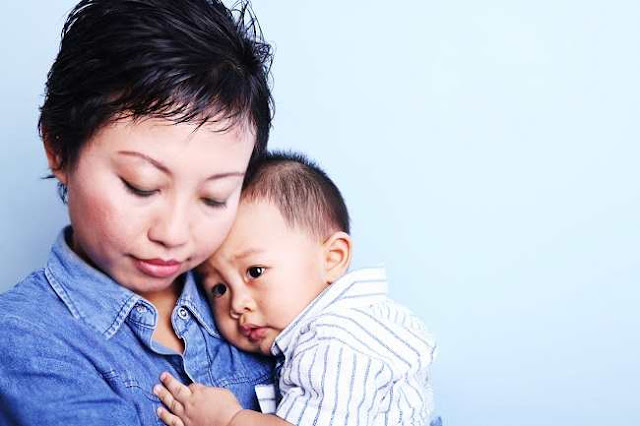First Know These 3 Things if You Want to Have a Second Child
Some couples find it more difficult to consider whether to have a second child than when deciding to have the first child. This is because the presence of a second child in the home will change the family in many ways, such as social relationships, lifestyle, work, finance, and of course with the first child.
Science does not dictate to Mother in making decisions, especially those concerning passion and love. If the heart wants to have a second child and so on, that is desire. But Father and Mother still need good planning, such as what is the ideal distance between the first and second children and how to prepare the first child to have a younger sibling, and other preparations.
Here are some issues that Father and Mother need to consider.
1. When is the right time to have a second child?
According to a number of studies, the recommended waiting time for a second child pregnancy ranges from 18-23 months after giving birth to the first child. The distance between the first and second child is useful for preparing the body of the Mother and for the prospective second child to grow and develop in a healthy manner. Mother's body needs time to recover from postpartum stress. In addition, the body also needs to replenish the nutrients lost due to giving birth to the Eldest and needs to get enough vitamin intake before giving birth again. During the break time, Mother can use it by maintaining a healthy body, implementing a balanced diet, and consulting with a doctor for a pregnant program if needed. Meanwhile, if the distance between giving birth to the first child and conceiving a second child is less than 17 months, it can increase the risk of the second child being born prematurely or being born under normal weight. Another study found that mothers who became pregnant within one year after giving birth to their first child had a higher likelihood of having a second child diagnosed with autism. The second child, born less than a year after the birth of the first child, has a 50 percent higher risk of autism compared to children born 2-5 years apart from their siblings. However, distances that are too long are also not ideal. Being pregnant after giving birth five years later can also increase the risk of premature babies or underweight babies.2. How to prepare the older brother?
In welcoming the baby sister, the first child may experience various emotions. Your brother can feel happy, jealous, or even hate. He may behave in an uncharacteristic manner that can drain Mother's energy, such as being fussy, having difficulty eating, and behaving excessively naughty. In addition, the first child may also show a setback in the ability to attract Mother's attention, for example forgetting the ability to use the toilet to urinate (potty training), speak baby language, drink with a pacifier, and suck the thumb. This problem is usually only temporary and can be solved by preparing the Eldest to be an older sister. Here are some ways.- Tell him that there is a baby growing inside your stomach. Invite the brother to say "hi" or "hello" to the fetus. Mother can also show photos when the brother is still a baby, then tell me that once the older brother was a small baby and later the baby's sister will be like the older brother when he was a baby.
- Take the sister to accompany Mother to do a pregnancy check.
- Involve the first child in the excitement of preparing a second baby, such as asking for his opinion in choosing items for the sister's room.
- Give the brother a role and tell him that it is important and very meaningful. Roles that can be taken, among others, help the Mother get baby diapers, choose toys for younger siblings, and others.
- Give the brother a surprise gift like a special bench for him to sit with Mother to breastfeed her baby sister. You can also prepare small gifts for you and give them when you are born. Also say that the gift is a gift from a baby sister.
- Bring the Eldest to people who will later help Mother take care of him when approaching the birth of a second child, such as aunt, grandmother, relatives, or baby sitter.
- When the Eldest visits the Mother after giving birth, make sure that the baby is placed in the crib so that the Mother can hug the Eldest. This is a valuable concern for the Eldest.



Comments
Post a Comment